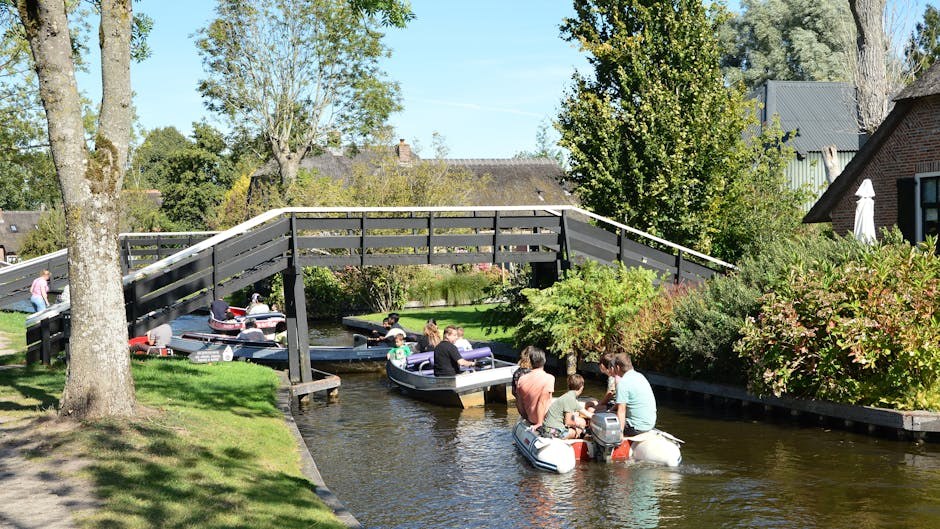The first night together can feel like stepping onto a small stage-there is anticipation, a flutter of nerves, and the real possibility of something wonderful unfolding. It is not simply a physical milestone; it is a quiet agreement to share space, to notice the details, and to learn how someone new fits into your rhythms. When handled with care, the first night together sets a tone that carries forward into mornings, messages, and the next time you meet. This guide reframes that moment so it feels less like a test and more like a welcoming ritual where comfort, consent, and curiosity lead the way.
Why this milestone matters more than you think
People often imagine the first night together as a single make-or-break event. In truth, its real power lies in how it shapes expectations. You are learning how you both communicate under soft lamps and quiet pauses-how you talk about comfort, how you navigate pauses, and how you respond when something feels off. The first night together is also a mirror for your emotional style: are you playful, direct, reserved, or exploratory? These small signals become a foundation for trust. When the moment emphasizes mutual ease and consent-expressed clearly and kindly-you start building a pattern that makes future closeness easier to enter.
It is normal to have jitters. Worries about performance, appearance, or timing are common during the first night together. Acknowledge them openly. Openness reduces pressure-an honest sentence can melt a room’s tension faster than any mood light. Partners who can say “I’m a little nervous” or “Can we slow down?” tend to create safer, warmer experiences. Vulnerability is not a flaw here-it is a shared language that makes the first night together feel human rather than staged.

Lay the groundwork before you turn the lights down
Preparation is not about choreographing every moment; it is about removing friction so you can focus on each other. A bit of planning before the first night together will help you both relax and follow the evening where it naturally wants to go.
Conversations that make everything easier
Speak about boundaries and comfort. Have a brief conversation about what feels good, what is off-limits, and what signals mean “slow down.” Treat consent as an ongoing, two-way dialogue-gentle check-ins during the first night together keep both of you aligned. If one of you is uncertain about a step, make “let’s pause” an easy, respected option.
Share quirks that affect sleep or routine. Maybe you are a light sleeper, run warm, or need silence to drift off. Perhaps you wake early, prefer dim light, or need a glass of water nearby. These small disclosures transform the first night together from a guessing game into a considerate exchange where both people feel seen.

Talk about protection and safety. Bring your own protection-do not assume the other person has it. Discuss contraception and STI safety before the first night together gets heated. Outside the bedroom, consider basic personal safety: share your plans with a trusted friend and know your transportation home. Safety broadens comfort; comfort enriches connection.
Set the stage-comfort over spectacle
Make the space welcoming, not theatrical. Clean bedding, fresh towels, a tidy surface for a phone or glasses, and a carafe of water do more good than elaborate decorations. Soft lighting and a comfortable temperature are quiet allies. The first night together is best served by ease-let the room look like a lived-in invitation, not a prop closet.
Mind the senses. Background music at a low volume can soften awkward silences; a subtle scent-nothing overpowering-can make the room feel grounded. If you use candles, think safety and simplicity. The goal is a calm hum beneath conversation, so the first night together feels warm rather than staged.

Pack light but smart if you are the guest. Toothbrush, medication, contact lens case, pajamas, and a phone charger cover most needs. Having basics at hand means fewer rummaging interruptions during the first night together, keeping you in the flow of the experience rather than the logistics.
Plan the morning without overplanning the moment
Sketch a gentle morning plan. Do you both have work? Are you leaving early? Would coffee together feel nice? Setting expectations ahead of time prevents morning awkwardness. This small kindness-deciding on coffee, a walk, or a quick goodbye-can make the first night together end with clarity rather than confusion.
Respect privacy. Ask before opening drawers, using someone’s toiletries, or posting anything on social media. During the first night together, treat the home-and the person in it-as a boundary you are lucky to be invited into.
Stay flexible. Even good plans deserve edits. If a moment feels rushed, slow it down. If conversation is flowing, let it. Rigidity can make the first night together feel like a checklist, while flexibility keeps it human.
Keeping the vibe easy, respectful, and real
When the night arrives, aim for steadiness rather than fireworks. Authenticity travels farther than any grand gesture, especially during the first night together. Here are supportive practices that keep the experience grounded and enjoyable.
Simple habits that elevate comfort
Stay present. Put away distractions. Listen to replies, not just your next thought. Presence is felt-eye contact that lingers, laughter that lands, a small pause before you answer. During the first night together, presence tells your partner that this shared time matters.
Keep hygiene thoughtful, not performative. A shower, brushed teeth, and clean sheets say “I prepared for you.” If spontaneity kicks in, suggesting a quick shower together can be playful and practical. Little acts like these let the first night together feel fresh and considerate.
Embrace the awkward moments. You are not auditioning-missteps will happen. If arms tangle or someone bumps a nightstand, laugh softly and carry on. A sense of humor can smooth the first night together more effectively than perfection ever could.
Go easy on extremes. If you have advanced preferences or toys, discuss them first. The first night together is not the right time for surprises that require heavy negotiation. Introduce ideas gradually with mutual enthusiasm.
Use your words. Speak up about what feels good, and ask what feels good for them. Positive feedback guides both of you in real time. Clear language-gentle and specific-turns the first night together into a collaborative experience rather than a guessing game.
Save a few signature moves for later. Novelty is exciting, but pacing creates anticipation. Offering everything at once can be exhausting for you and overwhelming for a partner. Let the first night together be the beginning of a longer conversation, not the anthology.
Keep the post-moment energy natural. After intimacy, avoid extremes-no sudden pet names or sudden coldness. Treat the next minutes like you would with a good friend: soft conversation, comfortable silence, or a light check-in. The first night together should wind down with the same kindness it began.
Avoid overstaying. Unless you have agreed to sleep over, be prepared to head out gracefully. Leaving on a considerate note keeps the first night together associated with respect, not uncertainty.
Understanding expectations-so no one reads between the lines
Clarity is caring. Define what this time means-casual exploration, exclusive dating, or simply seeing how you connect. The first night together often carries unspoken assumptions; naming them prevents mismatched hopes. If your feelings change afterward, say so. Consistency builds trust, and trust makes the second and third nights feel richer than the first.
Bring a few essentials-nothing more
Practical comfort items matter: charger, lip balm, a spare set of undergarments, and any necessary medication. This compact kit keeps you from borrowing awkwardly during the first night together. Overpacking, on the other hand, can feel like setting up camp-arrive as a guest, not a tenant.
Boundaries are invitations to trust
Respect spoken and unspoken limits. If either of you is not ready, you are both not ready-mutual pace matters. A considerate “Is this okay?” said softly and sincerely is among the most attractive phrases in any language. When boundaries are honored during the first night together, intimacy deepens without pressure.
Keep the atmosphere light and let connection do the heavy lifting
It is tempting to rush. Resist. Play a favorite movie, share a board game, or swap stories about travel mishaps. Laughter loosens shoulders, and familiarity grows from ordinary moments. Let the first night together unfold like a relaxed evening that happened to end close-because closeness blossoms when fun is allowed to stay.
Small morning gestures, outsized impact
Offer something simple. Coffee, tea, or a glass of water says, “I’m glad you’re here.” You do not have to cook a feast-basic hospitality after the first night together reads as care, not performance.
Check in without interrogating. A warm “I had a lovely time” or “How are you feeling?” honors the shared experience. This is not the moment for defining the entire relationship. Keep it gentle; the first night together benefits from a soft landing.
Part on a clear note. If you need to leave early, say it kindly. If you would like to see them again, say that too. Clarity after the first night together reduces second-guessing and keeps the memory bright.
Common missteps and how to sidestep them
Even smart, caring people make avoidable mistakes. Here are pitfalls that often trip couples during the first night together, with gentler alternatives.
Overplanning the spark right out of the room
Curating every second leaves no space for surprise. Aim for loose structure-think prepared, not programmed. Leave room for improvisation so the first night together breathes like a conversation, not a script.
Forgetting to ask and forgetting to listen
Consent is not one question asked once-it is a series of small invitations. Watch body language; listen to tone. If someone shifts away or seems unsure, slow down. Checking in does not kill the mood-done warmly, it creates it. A responsive rhythm is what turns the first night together from tense to tender.
Letting nerves drive the wheel
Being anxious can make you rush, apologize excessively, or clam up. Create a small ritual-three deep breaths, a sip of water, a simple sentence like “No rush.” Those little resets help the first night together feel grounded rather than frantic.
Clinging to a rigid plan
Maybe you imagined a particular moment that never materializes. That is okay. Flexibility invites better moments to arrive. When you treat the first night together as a shared exploration instead of a scoreboard, everything loosens-shoulders, conversation, timing.
Neglecting the basics
Good hygiene, clean sheets, and a tidy space are not luxuries-they are a baseline of respect. Nothing undermines the first night together faster than a room that feels chaotic or a breath that says, “I forgot you were coming.” The simplest preparations often carry the most impact.
Misreading signals
Leaning in when the other person leans back, talking over long pauses, or assuming humor where vulnerability is needed-these are common misreads. Ask gently, “Do you like this?” or “Want to switch?” Curiosity keeps the first night together collaborative instead of assumptive.
Not being mentally present
Thinking about how you look from the outside steals attention from how you feel on the inside. Anchor to sensations-the weight of a hand, the tone of a laugh, the ease in your chest. The first night together is richest when you treat it as a sensory experience instead of a performance review.
Ignoring comfort cues
Room too warm? Lights too bright? Pillow too flat? Comfort is not trivial-it is the infrastructure of intimacy. Adjusting a blanket or dimming a lamp is not fussy; it is thoughtful. Tuning the environment during the first night together keeps the focus on connection rather than discomfort.
Forgetting to enjoy the moment
If you treat the first night together as a test, you will grade every second. Instead, notice the tiny wins-the shared grin after a clumsy moment, the way conversation stretches without effort, the comfortable hush between sentences. Those are the threads you will remember, and they are the ones that weave the next chapter.
A calm, respectful blueprint you can actually use
To make this practical, think of the first night together as three gentle phases-before, during, and after-each with clear, doable steps that protect comfort and invite connection.
Before
- Trade expectations and boundaries in simple language-no speeches required.
- Prepare the space: clean linens, water within reach, lighting that flatters rather than floods.
- Have your own protection and essentials; do not assume their availability.
- Agree loosely on morning logistics so no one has to guess.
During
- Stay present-phones away, curiosity up.
- Use consent like a conversation-short, warm check-ins.
- Keep extremes for later unless already discussed and mutually desired.
- Let humor patch the awkward bits-laughter is a bridge.
After
- Offer small kindnesses-water, a blanket, a calm few minutes of quiet.
- Keep your tone steady-neither clingy nor distant.
- Part clearly-say thank you, express interest if you feel it, and respect the plan you both named.
Follow this blueprint and the first night together becomes less about impressing and more about relating. You are not trying to win; you are trying to understand-yourself, the other person, and the shared space between you.
How to carry the glow into the days that follow
What you do afterward matters. A brief message that says you enjoyed the time can be enough. If you want to see them again, suggest something low-pressure-coffee, a walk, a short call. The first night together should not trap you into a script; it should open a door you are both free to step through again.
If it did not feel right, honor that too. Not every connection needs a sequel. Being honest-in a kind, timely way-protects both people’s dignity. Clarity keeps the memory of the first night together respectful, even if the story ends there.
A gentle reminder as you step forward
No guide can choreograph chemistry. What you can control is tone-your steadiness, your attention, your willingness to communicate. Do those things well and the first night together becomes what it is meant to be: a simple, human evening where two people trade care for care, curiosity for honesty, and pressure for patience. That exchange is memorable not because it is perfect, but because it is kind.